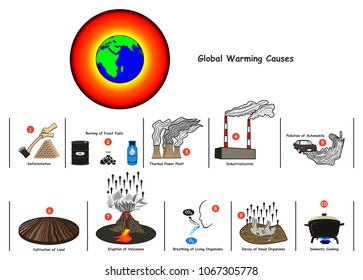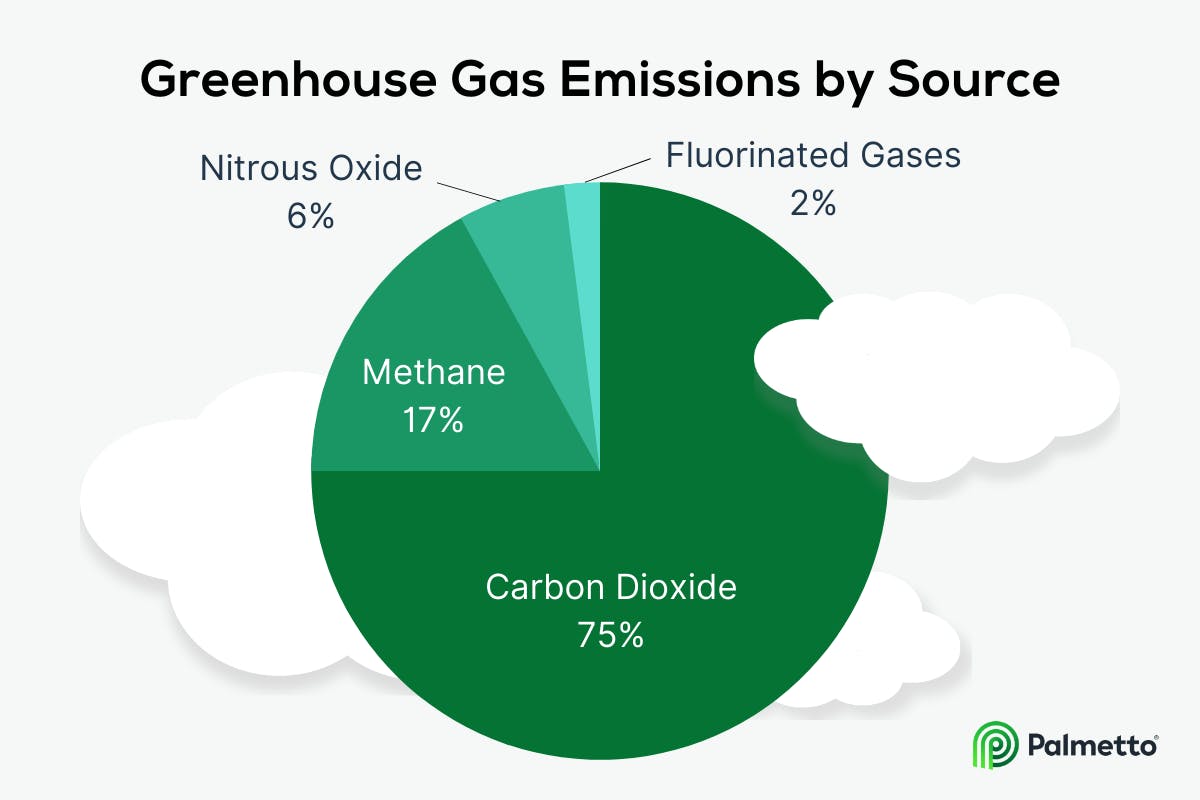
One definition of climate changes is an increase in long-term average weather conditions as a result of human activities. These changes occur through several causes, including the emission of greenhouse gases. The economy and human health can be affected by climate change. It is a global issue that will impact day-to-day living. Understanding the science behind climate change can help all citizens respond to it.
Global warming is a topic that many scientists are currently studying. Climate modeling is a method of predicting how temperature will change over time. Some studies project changes in precipitation or snowfall. Scientists are discovering that ocean acidification (and sea level) are both occurring.

Extreme weather events are increasing in frequency as a result of global warming. They can also become more intense. Due to industrialization and fossil fuel combustion, increasing amounts of carbon are being released in the atmosphere.
Other than greenhouse gases, there are other factors that contribute towards climate change, including short-term temperature variability and long-term temperature variation, as well as ocean acidification. The main reason for climate change is human activity.
Scientists have become more convinced that the main cause of climate change has been the burning of fossil fuels. The industrialized countries have been responsible for almost all global annual greenhouse gas (GHG), emissions in recent years. While most industrialized nations have set reduction targets for themselves, many are not meeting them. Therefore, negotiations are ongoing to develop more specific emission reduction targets for industrialized nations.
Interpreters need to be able to understand all perspectives, cultural influences, scientific explanations, and cultural influences when dealing with climate change. An interpreter who is interpreting a discussion about climate change as it relates to the human population will need to be knowledgeable about the economic, socio-political, and political aspects. A person must be informed about the latest information.

According to the United States Geological Survey global warming refers to an increase in global average temperatures. Climate models have predicted that there could be changes in the snow and ice. Other changes could also impact biodiversity and ecosystems. Additionally, climate change will create economic challenges.
In 1992, UNFCCC was established. The Rio Earth Summit brought together industrialized nations to commit to reducing GHG emissions by 2000. But, this goal is not achievable. The UN has been asked to form an expert group by seven of the world's largest economies to study the topic.
The IPCC (International Panel on Climate Change) is a research organization dedicated to the study of climate change. This body creates reports on the science of climate change. This group has published numerous reports since 1990 when the first one was released. Each one of these reports is supported by scientists around the world.
It's impossible to prevent the consequences of climate change. But adaptation is a way to minimize their impact. You can adapt by using technology, the mitigation pollution, or the conservation natural resources.
FAQ
What role can the energy sector play in climate changes?
The role of the energy sector in climate change is immense. The primary cause of global warming is the burning of fossil fuels. It releases carbon dioxide into our atmosphere and traps heat. This causes an increase of average temperatures.
This is why energy sources need to shift away from carbon-emitting resources like coal and natural gas and instead switch towards renewable energy sources such as solar, wind and geothermal. This transition can be made through both government policy and incentives, as well as investments in innovative technology like hydrogen fuel cell. Businesses and households can reduce their carbon emissions by investing in infrastructure to support the use of renewable energy sources.
Other options include switching away from petroleum-fueled cars, moving towards electric vehicles, and public transport. Governments can help lead society's transition from oil-based infrastructures to cleaner alternatives by funding research into battery technologies and encouraging consumers to make investments in cleaner modes.
To reduce carbon footprints, companies should adopt green business practices. For example, better insulation in offices and production facilities. This can dramatically reduce operational costs, while improving environmental performance metrics.
These initiatives must be championed not just at the company level but also at the government level for them to be truly effective; increasing taxes on pollution products encourages individuals to switch away from harmful practices without forcing them financially outcompeting polluters by providing vouchers or subsidies for low-carbon products will create an ongoing market to support sustainability efforts moving forward. The private and public sector must work together to combat climate change. Providing vouchers or subsidies for low-carbon products and switching to cleaner energy sources will create a market that supports sustainability efforts.
How does climate change and global heating impact agriculture and food safety?
Climate change and global warming have a direct impact on agriculture and food security. The changing climate can impact rainfall patterns and temperatures as well as soil moisture levels. Extreme weather is also possible. This can lead to disruptions in farming activities, lower crop yields, and loss of agricultural biodiversity. Warmer temperatures can cause crop diseases and pests to multiply. It can also affect the ranges that are suitable for agricultural production. This can result in higher costs for food production, and worsening hunger and nutrition around the world.
Rising sea levels pose a further threat. They could inundate valuable agricultural land in many coastal areas, leading to higher salinity levels in wetlands, where important crops are grown. Changes in climate also have an impact on livestock production. In summer, high temperatures can lower fertility rates in animals like sheep and cattle. This can result in lower milk yields, which can worsen food insecurity.
Although the relationship between climate change, global warming, and other factors is complex, there are efforts being made by governments to mitigate them through adaptation strategies. These include strategic investments in climate smart agriculture (CSA), which allows governments around the globe to make strategic investments in adapting their agricultural systems. This involves the promotion of sustainable methods such crop rotation techniques, or the conservation and preservation of native seeds varieties. These are ways to help mitigate the negative effects of climate change. In addition, CSA strategies call for reductions in greenhouse gas emissions through the use of renewable energy sources and the reduction of deforestation-related logging activities.
It is essential that farmers worldwide adopt technologies that are more responsive to changes in the environment when selecting the right crops to grow on specific parcels of land to ensure food security amid a rapidly changing environment. Infrastructure must be improved so that the necessary actions can be taken when critical crop thresholds have been reached. This includes creating stable irrigation networks with adequate water supply at times when water is scarce or when temperatures rise. Collaboration between different stakeholders is needed to ensure that the quality nutrition guidelines are adhered to in all climates.
How does climate politics affect global efforts for its resolution?
Climate change is highly politicized and has caused division between governments, individuals, and nations. The implementation of measures to address climate change is affected by the political stances of various actors. It has been difficult to reach a consensus on the global effort to address this urgent environmental problem.
The overwhelming majority of scientists agree with the fact that human-generated global warming is real. It is urgent for action to address it. Politics surrounding these issues can often hinder global cooperation, which is required to make effective progress in implementing sustainability energy practices and upholding regulations protecting natural environments, researching viable technological options, and other climate-change interventions.
Many governments around the globe want to protect business interests and enforce policies that restrict business activities. This often clashes with regulations that experts recommend for effectively addressing climate change. Without strong commitments by all countries involved and large-scale international action it is difficult for any state or group to adequately address climate changes through legislation.
Differences in power dynamics among countries further complicate gaining full consensus on how best to tackle climate change. The countries with greater economic power tend to nominate their own representatives to represent them in international bodies that are responsible for the environment. This can lead to biased discussions between the perceived interests of the country and the collective interest of all parties. In addition, potential side effects from implementing radical changes such as geoengineering have been debated heavily at both national and international levels.
The grassroots movements also have struggled against powerful enemies, such as corporate ownerships and well funded lobbyists who want to maintain politically favorable positions in their industries. This includes funding research into alternative forms energy production and enforcing renewable technology mandates. It is important that individual governments are clear about the possible rewards and outcomes if they intend to actively pursue valid progress on this matter and not seek public favor through short-term gains and spectacles.
A coordinated effort to reduce our environmental crisis will only succeed if resources are distributed properly and there is no political divide between nations.
What are the international efforts currently being made to address climate change
The current state of international efforts to address climate change is one of unprecedented unity and momentum. Countries around the world are increasingly collaborating on ways to reduce emissions, strengthen resilience against impacts, and invest in renewable energy sources.
The Paris Agreement is an international framework that encourages collective action. It also provides a framework to allow individual countries and regions to set voluntary targets to reduce emissions. The UN Framework Convention on Climate Change and (UNFCCC) provides political guidance, as well as piloting initiatives such a carbon market.
There are also progresses in certain regions. For example, the European Green Deal, a comprehensive package aimed at recreating Europe’s economy with sustainability at the core, and the African Renewable Energy Initiative, which targets increasing Africa's share in global renewable energy production, is being implemented.
Apart from policy changes, action is visible across sectors and industry. Cities are actively transitioning to sustainable public transport systems. Society at large is adopting more sustainable lifestyles. Companies have been innovating technologies to lower emissions. Investors are switching away from fossil fuels to invest in renewables.
Through the Common Reporting Framework (CFR), the 2021 Guidelines, the rich countries that are members of the OECD committee have agreed to common standards for reporting their national climate change actions.
All these efforts are a sign of the unprecedented importance given to climate action. To meet climate goals, both governments and civil society must continue to build on the momentum.
Statistics
- The 10 countries with the largest emissions contribute 68 percent. (un.org)
- This source accounts for about 10% of all the water that enters this highly productive farmland, including rivers and rain. (climate.nasa.gov)
- According to the 2014 report on Climate Change Impacts, Adaptation, and Vulnerability (page 8) from the United Nations Intergovernmental Panel on Climate Change, governments at various levels are also getting better at adaptation. (climate.nasa.gov)
- Fossil fuel production must decline by roughly 6 percent per year between 2020 and 2030. (un.org)
- features Earth's average surface temperature in 2022 tied with 2015 as the fifth warmest on record, according to an analysis by NASA. (climate.nasa.gov)
External Links
How To
How to Make Your Home More Energy-Efficient and Combat Climate Change
You can make your home more efficient and reduce your carbon footprint. It will also save you money on your utility bills.
Make sure your home is well insulated and sealed. You should ensure windows and doors are correctly installed, check for drafts around pipes, vents, and add weather stripping where needed.
Insulate your ceilings, floors, and walls to increase energy efficiency. Make sure to inspect the attic and any other areas in your home for air leaks.
Lighting is responsible for 18% of household electricity use. LED bulbs are up to 80% more efficient than traditional incandescent light bulbs. Installing motion sensors and timers will also help you save additional money by turning off lights as needed.
It is possible to reduce your energy costs by replacing an old boiler or furnace. Newer models are more efficient. You might consider a programmable thermostat, which allows you set the temperature according to when someone is at home or away.
Double-glazing windows can be replaced with better insulation. They also prevent heat from escaping through the glass. Low-flow showerheads reduce water consumption and maintain adequate pressure.
ENERGY STAR rated appliances are more efficient than non-certified models and can use as much as 50% less power. Make sure to take care of the little details, such as unplugging TV boxes and phone chargers when not in use. This could help save you significant energy.
These steps can make living at home easier and less stressful.